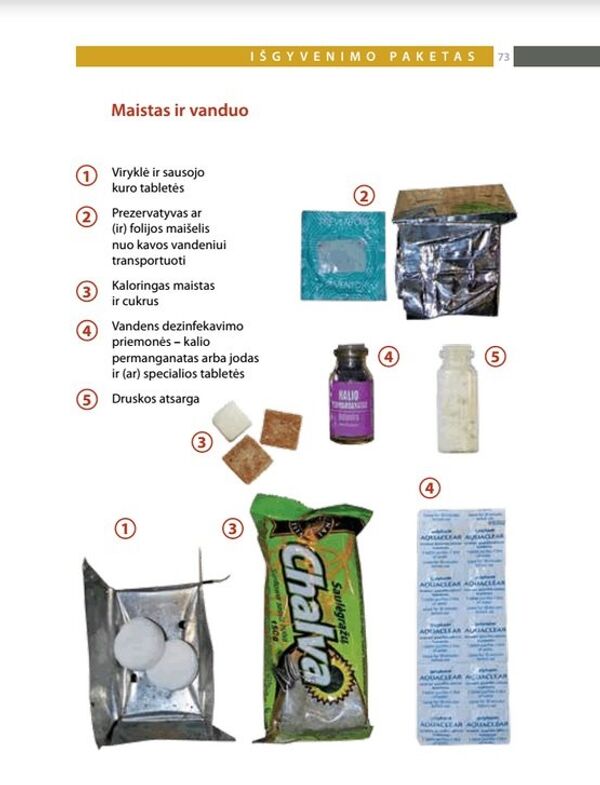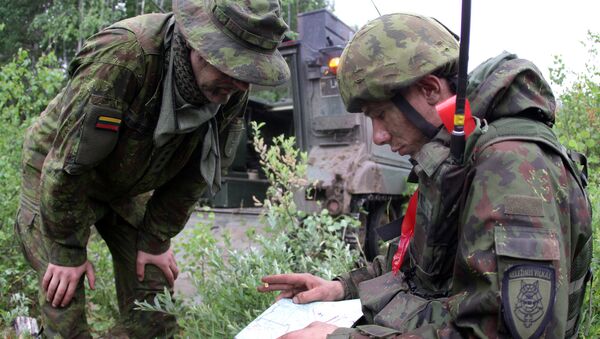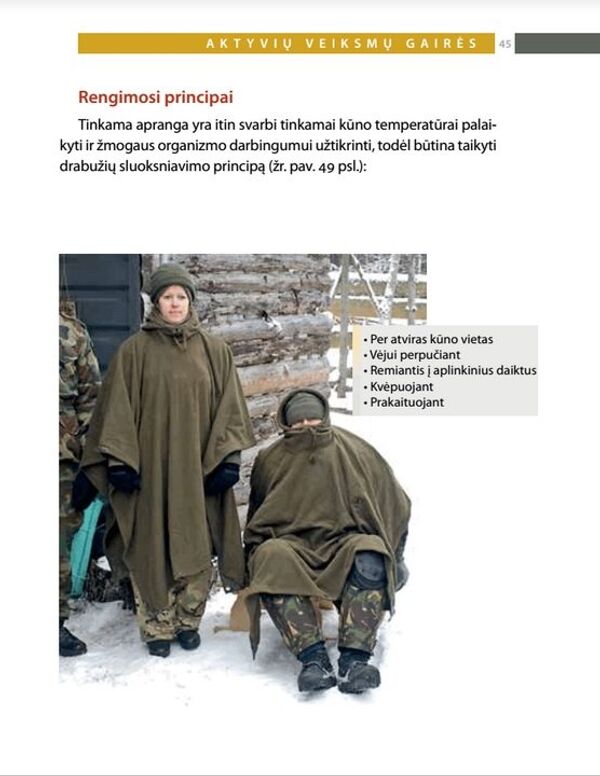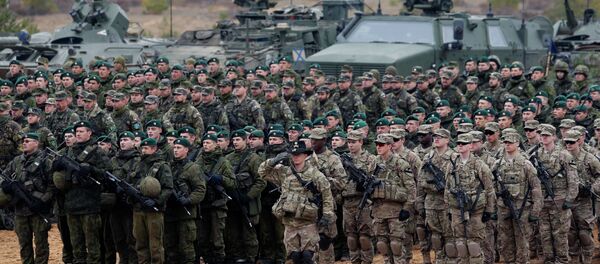The new manual, a 75-page document entitled 'What You Should Know About Resistance: Guidelines for Action', was revealed on Friday. 30,000 copies of the brochure, now in its third edition, will be distributed to schools and libraries. Like its predecessor, the new manual makes no bones about the 'main enemy', warning readers that "attention needs to be paid to the actions of the neighboring country – Russia," which "does not hesitate to use military force against its neighbors."
The new and improved guide for partisans is essentially an updated and more stridently anti-Russian version of the document published last year, which was more blandly titled 'What We Need to Do to Prepare in Case of an Emergency Situation or War'.
The beautifully labeled and illustrated document, which obviously cost the Defense Ministry a pretty penny, is filled to the brim with 'helpful hints', from detailed images of Russian armored vehicles, to instructions on the use of small arms and grenades, to navigation, first aid, how to keep warm outdoors, and how to hide in the forest from 'the aggressor'.
For those who want to help out the homeland, but aren't quite ready to become partisans, the manual offers tips on gathering information about the occupying army, identifying and informing on collaborators, and so on. It also recommends the storage of material goods vital to the resistance – medicines, non-perishable food items, condoms, warm clothes, weapons and ammunition.
The publication even offers suggestions on what warriors and their brave helpers should eat. "It is recommended to accumulate and retain at least minimal reserves of easily digestible high-calorie foods such as hazelnuts, dark chocolate, cholate with nuts, honey, sugar lumps, candies, halva, cocoa and sweetened beverage powder, chocolate cookies and other cookies, bouillon cubes, dried fruits, fatback, dried meat, and salt," the manual reads.

All in all, the Defense Ministry brochure does a good job of laying out the basics of partisan warfare. The only problem is that it provides absolutely no explanation about Russia's motives for invading the Baltic country. Why Russia would risk nuclear war with the entire NATO alliance for Lithuanian clay is left unclear.
That should come as no surprise, however, since the series of pamphlets was inspired by officials like army commander Lieut. Gen. Jonas Vytautas Zukas, who was promoted in a wave of anti-Russian hysteria beginning in 2014. Soon after his promotion, Zukas warned that Russians sneakily posing as tourists could attempt a takeover of the country. Tensions were further ratcheted up last year, when authorities officially put two train stations on lockdown after confusing Russian students heading to Kaliningrad for an invasion force.
Lithuanian Defense Minister Juozas Olekas told US media that the instructional booklet is meant as a demonstration "that whoever crosses our border will have strong resistance from our society, from our military forces." But the only demonstration Moscow is likely to see is that officials in Vilnius are continuing to up the ante in their anti-Russian paranoia.
Not all Lithuanians are happy about becoming a front line for NATO's confrontation with Russia, either. Speaking to Radio Sputnik, Klaipedia City Council member Vyacheslav Titov noted that unfortunately, much of Lithuania's national elite have presented Russia as an enemy from the moment that Lithuania declared its independence from the USSR.
"This is not the first handbook that has appeared in schools," Titov recalled, adding that the country's Russian-speaking minority is nevertheless "alarmed by the fact that the situation continues to escalate."
"Practically from the moment of Lithuania's independence, Russia has been presented as an enemy. And we, of course, feel uncomfortable living in such anxious conditions. For two years now we have seen how NATO exercises are being conducted in the country; we see the appearance of German tanks, for the first time since the end of World War II. It's not a joke anymore; we shudder at the sound of fireworks and ask ourselves 'is it really fireworks'?"
"Accordingly," the council member noted, "if we are under the control of a major geopolitical entity, it's very difficult to change something in the political sense. But I still hope that relations with Russia will improve, and that we can live in harmony…I don't think it will happen soon, but we must move in this direction," Titov stressed.






